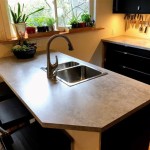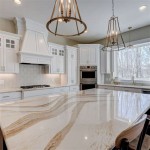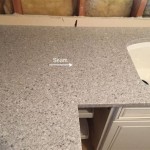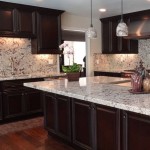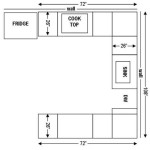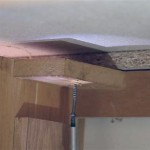How Thick Is A Butcher Block Countertop
Butcher block countertops are a popular choice for kitchens and other areas of the home. They are durable, easy to maintain, and can add a touch of rustic charm to any space. But how thick should a butcher block countertop be? The answer depends on a few factors, including the type of wood used, the size of the countertop, and the intended use.
The most common type of wood used for butcher block countertops is maple. Maple is a hardwood that is known for its strength and durability. It is also relatively easy to clean and maintain. Other types of wood that can be used for butcher block countertops include oak, cherry, and walnut. These woods are all durable and have a beautiful grain pattern. However, they are also more expensive than maple.
The size of the countertop will also affect the thickness. A small countertop, such as one for a kitchen island, can be made with a thinner piece of wood. A larger countertop, such as one for a kitchen peninsula, will need a thicker piece of wood to support the weight.
The intended use of the countertop will also affect the thickness. A countertop that will be used for food preparation will need to be thicker than a countertop that will be used for decorative purposes. A countertop that will be used for heavy-duty tasks, such as chopping meat, will need to be even thicker.
In general, a butcher block countertop should be at least 1.5 inches thick. A countertop that is 2 inches thick is even better. A countertop that is less than 1.5 inches thick is not as durable and may not be able to withstand heavy use.
If you are not sure what thickness is right for your butcher block countertop, it is always best to consult with a professional. A professional can help you choose the right thickness for your needs and can also help you install the countertop correctly.
Here are some additional tips for choosing the right thickness for your butcher block countertop:
- If you are using a softwood, such as pine or fir, you will need to use a thicker countertop. Softwoods are not as durable as hardwoods and are more likely to dent and scratch.
- If you are planning on using your countertop for heavy-duty tasks, such as chopping meat, you will need to use a thicker countertop. A thicker countertop will be able to withstand more wear and tear.
- If you have a large countertop, you will need to use a thicker countertop. A thicker countertop will be able to support the weight of the countertop and will be less likely to sag or warp.
By following these tips, you can choose the right thickness for your butcher block countertop. A properly chosen countertop will be durable, easy to maintain, and will last for many years to come.

What Is The Most Common Thickness For Wood Butcherblock Countertops Blog

What Is The Most Common Thickness For Wood Butcherblock Countertops Blog

Bme 5ft L X 25 W 1 5 Thick Unfinished Hevea Solid Hardwood Butcher Block Countertop Wal Business

Walnut Butcher Block Countertops Country Mouldings

How To Install Butcher Block Counters Concord Carpenter

Hampton Bay 4 Ft L X 26 In D Unfinished Acacia Solid Wood Butcher Block Countertop With Square Edge Ac2550

Walnut Butcher Block Countertop Custom Island Wooden Strong Oaks Wood

Custom Wormy Chestnut Island Kitchen Reclaimed Wooden Butcher Block Strong Oaks Wood

120 Maple Butcher Block Countertop Durable Food Safe

Installing Butcher Block Countertops Wildfire Interiors
See Also


